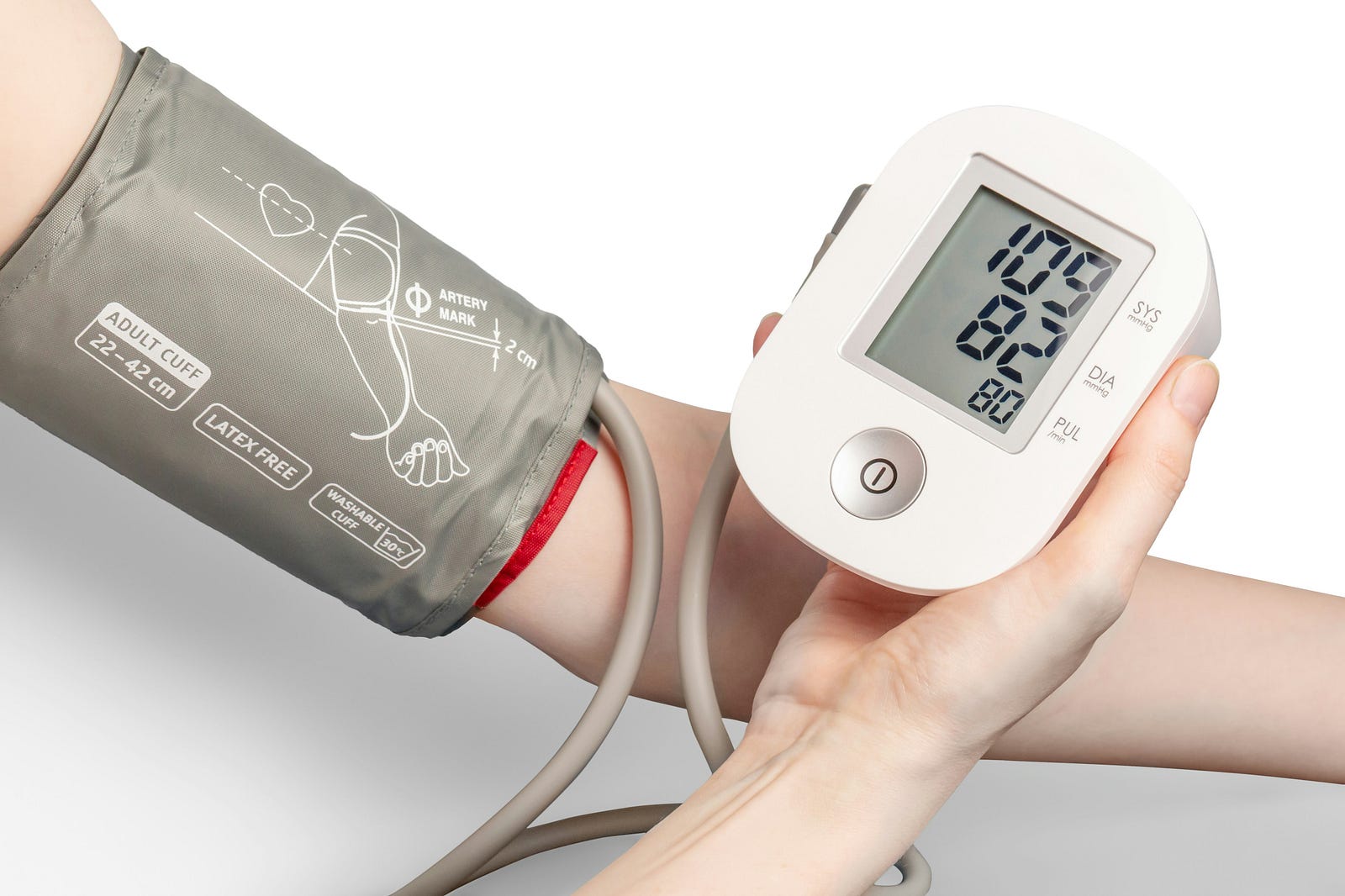TODAY, I OFFER 14 DEMENTIA RISK-REDUCING MANEUVERS, many backed by strong evidence. You will discover some hacks to master your mind: 14 proven strategies to slash your dementia risk potentially. Drop your dementia risk.
Oh, I will give you seven bonus hacks at the end, supported by lower levels of evidence.

Modifiable risk factors
Listen to neurologist Dr. Richard Isaacson, director of the Alzheimer’s Prevention Clinic at Weill Cornell Medicine, on CNN:
“If risk factors can be modified, the evidence suggests that at least one out of every three cases of Alzheimer’s may be preventable.”
We’ll spend a fair amount of time in the cardiovascular domain, as most lifestyle risk factors for dementia are the same. High blood pressure and high cholesterol levels are examples.
First, though, let’s start with a brief overview of dementia.
Dementia
What is dementia? It is a decline in cognitive function, impairing at least two brain functions. Dementia may affect any of the following:
- memory
- thinking
- judgment
- language
- behavior

Several illnesses or injuries can cause dementia. And the mental impairment can be mild to severe.
Natural history
A variety of illnesses or injuries may cause dementia. Mental impairment may range from mild to severe. It may also cause personality changes.
Some types of dementia are progressive. Progressive means they get worse over time. Some types are treatable or even reversible. Some experts restrict the term “dementia” to irreversible mental deterioration.
Summary
In summary, dementia describes a constellation of symptoms affecting thinking, memory, and social abilities.
In people who have dementia, the symptoms interfere with their daily lives. Dementia isn’t one specific disease. Several diseases can cause dementia.
Let’s get to your dementia hacks.
1. Drop Dementia Risk: Avoid Trauma
Head injury in the U.S. is common. A 2018 study in the New England Journal of Medicine revealed that over 23 million adults over 40 report a history of head injury with loss of consciousness.
Researchers discovered this disturbing link:
A single head injury could lead to dementia later in life. This risk further increases as the number of head injuries sustained by a person increases.

Trauma Details
Compared to participants who never experienced a head injury, a history of a single prior head injury was associated with a 1.25 times increased risk of dementia.
A history of two or more prior head injuries was associated with over twice the likelihood of dementia compared to individuals without a history of head injury.
Overall, 9.5 percent of all dementia cases in the study population could be attributed to at least one prior head injury.
The association between traumatic head injury and dementia risk is stronger among women than men.
The link is also greater from whites (than Blacks).
2. Drop Dementia Risk: Education
Does higher learning lower dementia risk?
Getting an education might help your brain be better at handling problems that could lead to memory issues like dementia.

Education might make your brain create more synapses, like connections between brain cells sharing information. More synapses might strengthen your brain, which could lower your dementia risk.
3. Drop Dementia Risk: Learn
The Alzheimer’s Association encourages us to embrace lifestyle habits that promote good overall health. These approaches include:
- Exercising
- Consuming a nutritious diet
- Staying socially and cognitively active.
To keep your brain sharp, try doing things that introduce you to new ideas.
Play games that require strategy, read challenging stuff, or find better ways to do things you’re used to.
Learning Tactics
Pick activities you like, so you’ll likely stick with them. Also, keep learning by getting more education whenever possible, regardless of age.

I practice classical piano daily, study the Japanese language, read a book every week or two, and do the occasional New York Times crossword puzzle.
Fortunately, my work as an oncologist is intellectually challenging, and brilliant peers surround me.
4. Drop Dementia Risk: Blood Pressure
Try to keep your blood pressure under control, especially in midlife. Listen to the Alzheimer’s Association:
Evidence shows that high blood pressure increases a person’s risk of developing dementia.
Long-term research studies show that individuals who had high blood pressure in mid-life — from 40–64 years of age — were more likely to develop dementia in later life, especially vascular dementia.
I would note that despite the vascular dementia and high blood pressure connection, the results from clinical trials investigating lowering blood pressure to prevent dementia have been inconclusive.
5. Drop Dementia Risk: Homocysteine
Stay away from high levels of homocysteine. This amino acid can contribute to blood clots and artery damage.
The homocysteine levels in your blood plasma reflect the functional status of three B vitamins (folate, B12, and B6). Here is the consensus statement of a group of experts:
Elevated plasma total homocysteine is a modifiable risk factor for cognitive decline and dementia in older persons.
Intervention trials in elderly with cognitive impairment show that homocysteine-lowering treatment with B vitamins slows the rate of whole and regional brain atrophy and cognitive decline.
Lowering homocysteine
If you have a homocysteine level that is too high, you may not be getting adequate B vitamins.
Even though I don’t know my homocysteine levels, I try to consume food with folate (folic acid), vitamin B6, and vitamin B12.
By adequately taking these vitamins, you may keep your homocysteine levels in the normal range.

Good dietary sources of B vitamins include:
- peas
- some fresh fruits (such as bananas and oranges)
- nuts.
- whole grain breads
- some fortified breakfast cereals.
- liver (a “no” for me!)
6. Drop Dementia Risk: Sugar
Keeping your blood sugars (and weight) in check to avoid diabetes may reduce your odds of developing diabetes.
What’s the relationship between diabetes and dementia risk? A United Kingdom study discovered the following after following individuals from 1985 to 2019:

For every 1,000 people, the dementia rates were 8.9 in those without diabetes at age 70.
For those with diabetes onset up to five years earlier, the rate was 10; for those diagnosed six to 10 years earlier, it was 13. Finally, for those diagnosed more than ten years earlier, the rate was 18.3.
These striking results show that the earlier you develop diabetes, the greater your risk is for developing dementia.
Diabetes details
One intriguing hypothesis is that diabetes directly causes Alzheimer’s disease.
Some refer to Alzheimer’s disease as “type 3 diabetes” because of the shared cellular and molecular and cellular features between diabetes and Alzheimer’s:
- Insulin is central to the formation of Alzheimer’ s-related amyloid plaques.
- Insulin resistance in the body can cause type 2 diabetes. Insulin resistance in the brain can lead to plaques and tangles associated with Alzheimer’s disease.
Drop your diabetes risk.
Fortunately, many of us can lower our type 2 diabetes (and dementia) risk. Here are some lifestyle approaches that can help you dodge diabetes.
For those with prediabetes or diabetes, these life changes can still be valuable.

- Do aerobic exercise at least 30 minutes daily, five days weekly.
- Eat a Mediterranean-style menu of foods.
- Maintain a healthy weight.
- Manage high blood pressure.
- Treat high cholesterol.
- Avoid tobacco.
7. Drop Dementia Risk: Weight
Have you heard of the body mass index (BMI) paradox in dementia?
The Framingham study revealed these findings:
- Being overweight (that is, having a BMI of at least 25) in mid-life is associated with an increased dementia risk later in life.
- Being overweight in later life is linked with a reduced dementia risk.
It isn’t easy to conclude causal relationships. There may be reverse causation; negative brain changes may influence the risk factor, leading to incorrect conclusions.
Still, I will aim to maintain a healthy weight.
8. Drop Dementia Risk: Stress
Managing bad stress may reduce my dementia risk.
Cortisol, a hormone we release from our adrenal glands when stressed, is associated with memory problems.
Cortisol elevation damages the hippocampus, a critical memory and learning system component. Chronically high stress hormone levels can cause functional loss in several brain parts, including the hippocampus.

Other Stress Issues
Stress is also linked with anxiety and depression, factors that might increase dementia risk. Stress and depression have a bidirectional relationship.
Some animal model studies show a direct impact of stress on some mechanisms underlying dementia.
Still, it is challenging to confirm the stress: dementia connection. The Alzheimer’s Society offers that stress could play a role in dementia development but is unlikely to be the only factor that causes the condition.
9. Drop Dementia Risk: Orthostatic Hypotension
Orthostatic hypotension (postural hypotension) can manifest as regularly feeling light-headed or dizzy when standing up from sitting.
The Mayo Clinic (USA) explains occasional orthostatic hypotension is typically the result of something obvious, such as lengthy bed rest or dehydration. Healthcare providers can often treat this condition successfully.
On the other hand, chronic orthostatic hypotension is usually a sign of another health problem, so management hinges on the cause.
The causative association with dementia may turn out to be bidirectional.
10. Drop Dementia Risk: Depression
The Hospital of the University of Pennsylvania (USA) researchers reported this (after examining a Danish population):
Individuals with depression were more than twice as likely to be diagnosed with dementia.

The risk was higher for men than women. It was also more elevated for individuals with multiple inpatient hospitalizations for depression.
Depression and dementia
There is not a clear causal relationship between depression and dementia. One of the Hospital of the University of Pennsylvania researchers frames the issue:
“It is still unclear what about depression increases the risk of a dementia diagnosis, and I hope to see further research that evaluates whether the link between depression and dementia may be biological, a result of behaviors associated with depression like social isolation and other changes in key health behaviors, or some combination of these mechanisms.”
11. Higher education
Obtaining as much education as possible in early life appears to be linked to lower dementia risk.

Admittedly, not all studies have found this connection.
Nevertheless, researchers generally believe that having more education gives your brain a kind of backup called cognitive reserve.
This backup might help lower your odds, or at least delay, the start of conditions like dementia.
12. Be Social
Remaining socially active may support brain health and possibly delay the onset of dementia.
There are many ways to stay socially active in your community; these activities can provide the greatest connection to others.

Consider volunteer work. Or a book club. Or engage with friends or family regularly.
Or, get involved with our cause to end Alzheimer’s by becoming a volunteer or advocate or participating in a community event.
13. Hearing Impairment
Scientists have discovered a connection between difficulty hearing and the likelihood of developing memory issues in older people.
Studies indicate that using hearing aids to address hearing problems could slow down the progression of cognitive problems.
A randomized clinical trial found this provocative result:
People who received hearing aids reported big improvements in communication abilities throughout the study.
Hearing Aid Study Details
In the analysis of all study participants, the researchers found no difference in the rate of change in cognitive functioning between people who received hearing aids and those who did not.
But, when the analysis focused on people from the heart health study — who had a higher risk of dementia — the hearing aid benefit was substantial.
Those receiving hearing aids had an almost 50 percent lower rate of cognitive decline than people in the health-education group.

14. Alcohol
Reviews show that individuals who drank heavily (or engaged in binge drinking) were more likely to develop dementia than those drinking moderately.
In summary, excessive drinking raises an individual’s dementia risk (compared to abstaining).
NICE Guidelines recommend that alcohol consumption be reduced as much as possible, particularly in mid-life, to minimize the risk of developing age-related conditions, including dementia and frailty.
Moderate Alcohol
But what about moderate alcohol consumption? There is conflicting evidence about the benefit of drinking in moderation.
A small number of studies suggest that individuals who drank in moderation were less likely to develop dementia than those who consumed no alcohol.
However, other studies suggest that there is no benefit to drinking alcohol.
Alcohol may have protective effects on the brain; the substance thins blood and raises “good” cholesterol in the body. These effects might lower dementia risk.
On the other hand, drinking — even in moderation — reduces brain volume. Moreover, drinking alcohol can be linked to other health conditions.
Other Potential Risk Reducers
Let’s look at potential dementia-reducing actions that don’t have the same level of evidence as the factors I just presented.

15. Move
Getting regular physical exercise might reduce your risk of dementia. Maybe.
For me, this means getting a 30-minute brisk walk virtually daily. But is there evidence that I am lowering my dementia risk?
Exercise studies
One analysis of 26 randomized clinical trials looking at exercise and dementia risk (and 21 cohorts on physical activity and cognitive decline) showed this:
Compared to those with lower levels of physical activity, participants with higher levels are at reduced risk (45 percent lower) of cognitive decline. Dementia risk was slightly (14 percent) lower.
On the other hand, a separate meta-analysis does not support the idea that exercise reduces the risk of developing clinically important cognitive outcomes.
16. Sleep
Sufficient, good-quality sleep may lower your dementia risk.
I have always wondered whether there is a causal relationship. Does poor sleep increase dementia risk? Or is it that those with early cognitive impairment sleep less well?
The answer may be both.

Sleep studies
Harvard Medical School researchers followed 2,800 subjects ages 65 and older. The study findings are disturbing:
Individuals who slept under five hours per night were twice as likely to develop dementia compared to those who slept six to eight hours per night.
A separate study of nearly 8,000 participants showed a nearly one-third (30 percent) increase in dementia risk associated with sleeping six hours or less at ages 50, 60, and 70, compared to a normal sleep duration of seven hours.
During sleep stages 3 and 4, the body restores itself, making these stages essential for cognitive function and overall health.
17. Tobacco
Don’t smoke (and avoid second-hand smoke, too).
The 2020 Lancet Commission on dementia risk highlighted smoking as a major risk factor.
Smoking may increase dementia risk by 1.3 to 1.5 times.
Four studies in the World Alzheimer’s Report examined the number of cigarettes and dementia risk. Two studies showed a relationship between higher tobacco consumption and a higher risk of dementia.

Smoking: dementia connection
The Alzheimer’s Society offers some explanations for the possible smoking-dementia connection. Smoking increases the chances of vascular problems (blood vessels and the heart).
These vascular issues are also linked to the two most common dementia types: Alzheimer’s disease and vascular dementia.
Moreover, cigarette smoke toxins cause inflammation and stress to cells, which have both been linked to Alzheimer’s disease.
18. Cerebrovascular health
Avoiding cerebrovascular health — think stroke and diseases affecting brain blood flow — might lower your odds of developing dementia.
Stroke occurs when blood flow to your brain is interrupted, and brain cells are damaged or die. This damage can lead to dementia.
Having a stroke more than doubles your risk of developing dementia.
New research is resulting in a greater understanding of the link between stroke and dementia and how to reduce their impact.
Cerebrovascular illness — Drop your risk
Here is Calgary (Canada) stroke neurologist Dr. Eric Smith’s take:
Lowering your stroke risk helps to protect your brain.
Reducing stroke risk protects your brain. Healthy living is about dementia, too. Everything you do to protect your body protects your brain.

Reduce your risk by focusing on risk factors that are common to cerebrovascular health and dementia:
- diabetes
- high blood pressure
- high cholesterol
- physical inactivity
19. Heart rhythm
Atrial fibrillation is an irregular, rapid heart rate due to chaotic electrical signals in the heart. Effectively managing the condition can lower dementia risk.
A 2023 study showed this:
Compared with those without atrial fibrillation (AF), those with AF had a 1.4 times higher risk of developing any form of dementia. They had a 2.1-fold increase in vascular dementia risk. Alzheimer’s disease risk did not appear higher.

Atrial fibrillation, age, and dementia risk
Age matters when it comes to risk. Dementia risk is inversely proportional to the age at which AF develops.
Those diagnosed with atrial fibrillation before age 65 had the highest risk of developing dementia (1.8 times higher), followed by those 65 to 74 (1.5 times higher risk) and 75 or older (1.1 times higher).
In conclusion, atrial fibrillation is associated with an elevated risk of all types of dementia, including Alzheimer’s disease and vascular dementia.
20. Frailty
After adjusting for age, sex, education, and baseline cognition, baseline frailty status is significantly associated with dementia and death.

A frailty index might help identify older adults at high risk of dementia.
Clinical trial management tools may be directed at such individuals to reduce risk.
21. Vitamin C
A 2022 study revealed this finding:
There is a significant decrease in the blood vitamin C levels of Alzheimer’s disease patients as compared to healthy controls.
Of course, this does not mean consuming vitamin C reduces the risk of dementia.

The research results are mixed, but long-term supplementation with antioxidant vitamins appears promising for future research.
For now, I’ll stick to trying to up my fruit consumption.
Final thoughts — Drop Dementia Risk
If you are particularly concerned about your risk of developing dementia — for example, because the condition runs in your family — consider working with a neurologist to develop a plan to reduce your risk.
Of course, we have no magic pill or action that can guarantee that you drop your dementia risk.

Still, you now have 14 proven strategies to slash your dementia risk. And seven bonus ones, too.
I worry a bit about dementia, even though no one in my family has ever had the condition. And you? Do you, too, fear it, and if yes, what are your go-to strategies for dementia risk reduction?
Thank you for reading “Drop Dementia Risk.”




